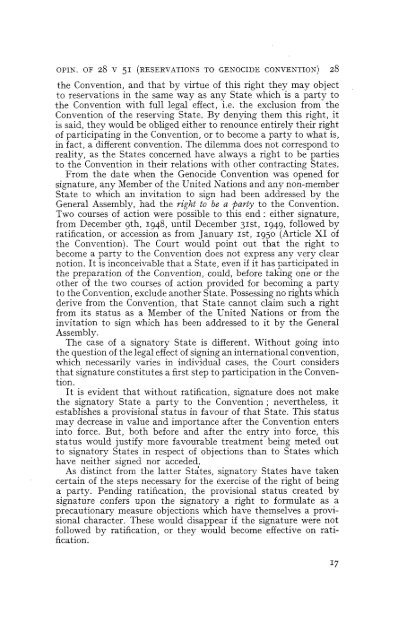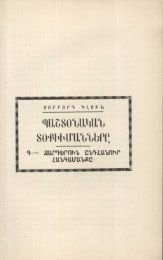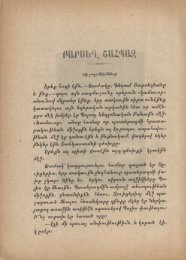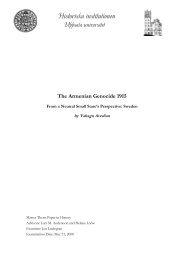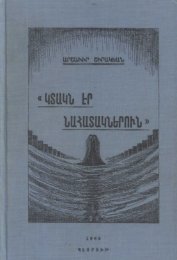Avis consultatif du 28 mai 1951 - Cour international de Justice
Avis consultatif du 28 mai 1951 - Cour international de Justice
Avis consultatif du 28 mai 1951 - Cour international de Justice
- No tags were found...
Create successful ePaper yourself
Turn your PDF publications into a flip-book with our unique Google optimized e-Paper software.
the Convention, and that by virtue of this right they may objectto reservations in the same way as any State which is a party tothe Convention with full legal effect, i.e. the exclusion from theConvention of the reserving State. By <strong>de</strong>nying them this right, itis said, they would be obliged either to renounce entirely their rightof participating in the Convention, or to become a party to what is,in fact, a different convention. The dilemma does not correspond toreality, as the States concerned have always a right to be partiesto the Convention in their relations with other contracting States.From the date when the Genoci<strong>de</strong> Convention was opened forsignature, any Member of the United Nations and any non-memberState to which an invitation to sign had been addressed by theGeneral Assembly, had the right to be a Party to the Convention.Two courses of action were possible to this end : either signature,from December 9th, 1948, until December pst, 1949, followed byratification, or accession as from January ~st, 1950 (Article XI ofthe Convention). The <strong>Cour</strong>t would point out that the right tobecome a party to the Convention does not express any very clearnotion. It is inconceivable that a State, even if it has participated inthe preparation of the Convention, could, before taking one or theother of the two courses of action provi<strong>de</strong>d for becoming a partyto the Convention, exclu<strong>de</strong> another State. Possessing no rights bvhich<strong>de</strong>rive from the Convention, that State cannot claim such a rightfrom its status as a Member of the United Nations or from theinvitation to sign which has been addressed to it by the GeneralAssembly .The case of a signatory State is different. Without going intothe question of the legal effect of signing an <strong>international</strong> convention,which necessarily varies in indivi<strong>du</strong>al cases, the <strong>Cour</strong>t consi<strong>de</strong>rsthat signature constitutes a first step to participation in the Convention.It is evi<strong>de</strong>nt that without ratification, signature does not makethe signatory State a party to the Convention ; nevertheless, itestablishes a provisional status in favour of that State. This statusmay <strong>de</strong>crease in value and importance after the Convention entersinto force. But, both before and after the entry into force, thisstatus would justify more favourable treatment being rneted outto signatory States in respect of objections than to States whichhave neither signed nor acce<strong>de</strong>d.As distinct from the latter States, signatory States have takencertain of the steps necessary for the exercise of the right of beinga party. Pending ratification, the provisional status created bysignature confers upon the signatory a right to formulate as aprecautionary measure objections which have themselves a provisionalcharacter. These would disappear if the signature were notfollowed by ratification, or they would become effective on ratification.


